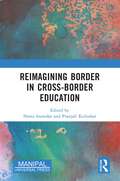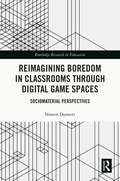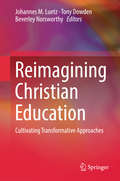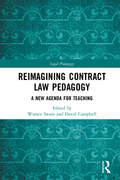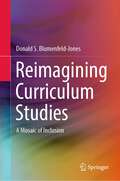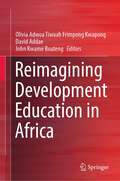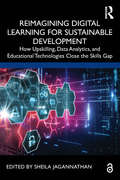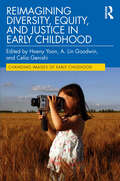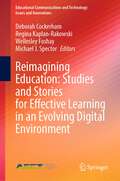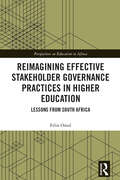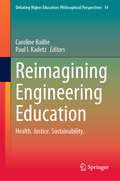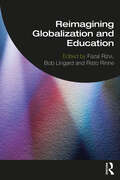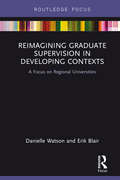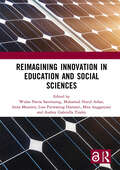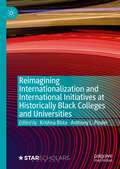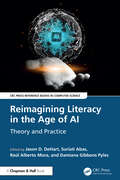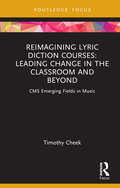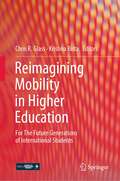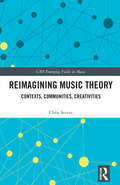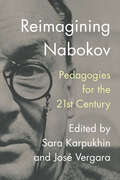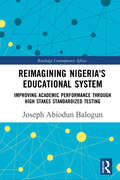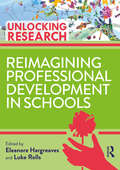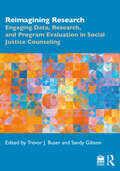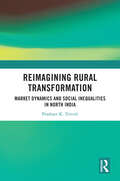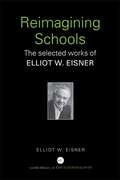- Table View
- List View
Reimagining Border in Cross-border Education
by Neeta Inamdar Pranjali KirloskarUniversities are inherently and definitionally universal in their quest for the creation and dissemination of knowledge. They are set to defy borders that exist in parochial forms. Globalization which opened up borders has by design or default created inequalities and imbalances in knowledge systems. Undoubtedly, knowledge is power but there is difference in the power that is intrinsic to it and the power that is ascribed which is determined by dominant political and economic hierarchies. If knowledge predominantly flows from global north to global south, people seeking knowledge move from global south to global north. These imbalances are also seen within these regions, between cultures and communities, one claiming superiority over the other. These realities call for a reassessment of not only what constitutes knowledge, but also what encompasses the idea of borders. This book elaborates on the inclusive role of education that can act as an equalizer or as a catalyst for creating a level playing field across borders. Print edition not for sale in South Asia (India, Sri Lanka, Nepal, Bangladesh, Pakistan and Bhutan)
Reimagining Boredom in Classrooms through Digital Game Spaces: Sociomaterial Perspectives (Routledge Research in Education)
by Noreen DunnettThis book challenges common understandings of boredom and disengagement in classrooms, taking a relational approach to boredom which looks beyond the usual distinctions between in-school and out-of-school practices. The book explores how a sociomaterial perspective can provide an alternative analysis of boredom as performative, and as a phenomenon assembled in space and time rather than as a psychological attribute of the individual student. This perspective explores the affective experience of learning and how it is created in the classroom through assemblages of people, technology, objects and environment and the differing relations within them. Drawing on empirical data from a case study which compares formal learning and digital gaming practices in a group of secondary schools in England, the book suggests that by altering the affordances and constraints available in learning situations we can prevent boredom and disengagement emerging in the classroom. This innovative book proposes that the mobility and dynamism of game spaces offer us new ways to re-imagine engagement in learning and will be of relevance to scholars, researchers and postgraduate students in the fields of teaching and learning, digital gaming, educational philosophy and educational technology.
Reimagining Christian Education: Cultivating Transformative Approaches
by Johannes M. Luetz Tony Dowden Beverley NorsworthyThis book is an arresting interdisciplinary publication on Christian education, comprising works by leading scholars, professionals and practitioners from around the globe. It focuses on the integrated approaches to Christian education that are both theoretically sound and practically beneficial, and identifies innovative pedagogical methods and tools that have been field-tested and practice-approved. It discusses topics such as exploring programmes and courses through different lenses; learning challenges and opportunities within organisational management; theology of business; Christian models of teaching in different contexts; job preparedness; developing different interpretive or meaning-making frameworks for working with social justice, people with disability, non-profit community organisations and in developing country contexts. It offers graduate students, teachers, school administrators, organisational leaders, theologians, researchers and education practitioners a fresh and inspiring reimagining of Christian education perspectives and practices and the ramifications of their application to life-long learning.
Reimagining Contract Law Pedagogy: A New Agenda for Teaching (Legal Pedagogy)
by David Campbell Warren SwainReimagining Contract Law Pedagogy examines why existing contract teaching pedagogy has remained in place for so long and argues for an overhaul of the way it is taught. With contributions from a range of jurisdictions and types of university, it provides a survey of contract law courses across the common law world, reviewing current practice and expressing concern that the emphasis the current approach places on some features of contract doctrine fails to reflect reality. The book engages with the major criticism of the standard contract course, which is that it is too narrow and rarely engages with ordinary life, or at least ordinary contracts, and argues that students are left without vital knowledge. This collection is designed to be a platform for sharing innovative teaching experiences, with the aim of building a new approach that addresses such issues. This book will have international appeal and will be of interest to academics, researchers and postgraduates in the fields of law and education. It will also appeal to teachers of contract law, as well as governmental and legal profession policymakers.
Reimagining Curriculum Studies: A Mosaic of Inclusion
by Donald S. Blumenfeld-JonesThis book addresses the crucial issue of how we value and deploy the idea of “freedom” that underlies contemporary curriculum studies. Whether we are conventional curriculum thinkers who value knowledge development or favor a Deweyan, individualist orientation toward curriculum or are a critical social justice curriculum thinker, at the heart of all these orientations and theorizing is the value of “freedom.” The book addresses “freedom” through novel sources: the work of Martin Buber on education, Julia Kristeva on the uses of imagination and the female/male dialectic, Emmanuel Levinas’ unique approach to ethics, and more. Readers will find new ways to understand freedom and the world of ethical life as informing curriculum thinking. It provides a more ecumenical vision that can draw our differences together. It helps readers to reconsider ourselves in fruitful ways that can bring more relevance and substance to the field.
Reimagining Development Education in Africa
by Olivia Adwoa Tiwaah Frimpong Kwapong David Addae John Kwame BoatengThis edited volume uses an African-centred approach to examine a renewed vision of development education in Africa. The purpose of the volume is to supplant prevailing Western ideologies, traditions, and rhetoric in the development education discourse in Africa and to advocate for alternative paradigms, knowledges, beliefs, and practices through the effort of dialogue between competing orientations, values and experiences. The book argues that Africa's development challenges are uniquely African requiring indigenous African solutions. Consequently, this book offers an insightful collection of case studies and conceptual papers that examine how indigenous African knowledge, philosophies, traditions, beliefs, and values shape the theory and practice of development education in Africa. Reimagining Development Education in Africa exemplifies an interdisciplinary and multifaceted scholarship, addressing topical issues and advances in development education in Africa. The book discusses among other topics, Ubuntu-inspired education for sustainable development, decolonising African development education, Afrocentricity, Globalisation, and gender equality. This book is a must read for scholars and students interested in understanding indigenous educational efforts aimed at promoting sustained improvements in the quality of life of African peoples.
Reimagining Digital Learning for Sustainable Development: How Upskilling, Data Analytics, and Educational Technologies Close the Skills Gap
by Sheila JagannathanReimagining Digital Learning for Sustainable Development is a comprehensive playbook for education leaders, policy makers, and other key stakeholders leading the modernization of learning and development in their institutions as they build a high value knowledge economy and prepare learners for jobs that don't yet exist. Currently, nearly every aspect of human activity, including the ways we absorb and apply learning, is influenced by disruptive digital technologies. The jobs available today are no longer predicators of future employment, and current and future workforce members will need to augment their competencies through a lifetime of continuous upskilling and reskilling to meet the demands of the Fourth Industrial Revolution. This book features curated insights and real-world cases from thought leaders throughout the world and identifies major shifts in content formats, pedagogic approaches, technology frameworks, user and design experiences, and learner roles and expectations that will reshape our institutions, including those in emerging economies. The agile, lean, and cost-effective strategies proposed here will function in scalable and flexible bandwidth environments, enabling education leaders and practitioners to transform brick-and-mortar learning organizations into digital and blended ecosystems and to achieve the United Nation’s ambitious Sustainable Development Goals by 2030.
Reimagining Diversity, Equity, and Justice in Early Childhood (Changing Images of Early Childhood)
by A. Lin Goodwin Celia Genishi Haeny YoonSituated against a backdrop of multiple global pandemics—COVID-19, racial injustice and violence, inequitable resource distribution, political insurrections and unrest—this timely and critical volume argues for a divestment in white privilege and an investment in anti-racist pedagogies and practice across early childhood contexts of research, policy, and teaching and learning. Featuring established scholar-practitioners alongside emerging voices, chapters explore key issues around equitable and inclusive practices for young children, covering topics such as multilingualism and multicultural practices of immigrant communities, language varieties, and dialects across the Black diaspora, queer pedagogies, and play at the intersection of race, gender, disability, and language. Thoughtfully and compellingly written, each chapter offers an overview of the issue, the theoretical framework and critical context surrounding it and implications for practice.
Reimagining Education: Studies and Stories for Effective Learning in an Evolving Digital Environment (Educational Communications and Technology: Issues and Innovations)
by Deborah Cockerham Michael J. Spector Regina Kaplan-Rakowski Wellesley FoshayTechnology has developed at a tremendous rate since the turn of the century, but educational practice has not kept pace. Traditional teaching practices still predominate in many educational settings, and educators are often intimidated by new technology. However, as tragic as the COVID-19 pandemic has been, it has caused many people to rethink education and opportunities provided by new technologies for effective teaching and learning. How can educational communities of practice be reimagined to support a growth mindset for learning? This volume explores innovative visions for 21st century learning. The content explores the experiences of teachers with new technology, presents research studies that highlight effective strategies and technologies, and shares lessons learned from a unique researcher-practitioner mentoring model. Educational approaches that worked well, challenges that were difficult to overcome, and potential benefits of effective technology integration will encourage readers to reimagine education and implement practices that can strengthen the future of online education.
Reimagining Effective Stakeholder Governance Practices in Higher Education: Lessons from South Africa (Perspectives on Education in Africa)
by Felix OmalThis book examines the role of the university governing council and the changing nature of university governance using a case study from a South African university. The book considers the key challenging features of South African higher education in relation to current competing international trends in higher education governance It shows how major decision makers within the university operate within competing governance knowledge domains to exercise good practice within turbulent institutional contexts. These diverse institutional cultures are examined in terms of their contribution to various governance practices, presenting an emerging model of university governance known as the structural systemic-cultural mode. Throwing light onto the nature of challenges associated with the governance of universities in the post-apartheid era, this book will be of interest to academics, researchers and post-graduate students in the fields of higher education, comparative education and education governance. It will also appeal to university councils and management across Africa.
Reimagining Engineering Education: Health. Justice. Sustainability. (Debating Higher Education: Philosophical Perspectives #14)
by Caroline Baillie Paul I. KadetzThis book considers a radical change to engineering education. It argues for a reexamination of the traditional way in which engineering students are educated in disciplinary silos and how, instead, we might re-imagine their professional education to more appropriately prepare students to design innovative solutions to increasingly complex global challenges. It poses the question: “How can engineers think outside the engineers’ box?". A box that has over generations rendered engineers to be unquestioning servants of the socio-political systems in which they function. The book introduces a unique framework and language for engineering education which considers both the problems of the past and present, and the potential solutions offered for the future. By reaching out beyond the bounds of traditional knowledge and thought collectives, this book will also offer a pathway for other professional education programs to explore.
Reimagining Globalization and Education
by Fazal Rizvi Bob Lingard Risto RinneThis book brings together leading scholars in Global Studies in Education to reflect on how various developments of historic significance have unsettled the neoliberal imaginary of globalization. The developments include greater recognition of inequalities and the changing nature of work and communication; the emergence of new technologies of governance; a greater awareness of geopolitical shifts; the revival of nationalism, populism and anti-globalization sentiments; and the recognition of risks surrounding pandemics and climate change. Drawing from a range of disciplinary perspectives, the chapters in this collection examine how these developments demand new ways of thinking about globalization and its implications for education policy and practice — beyond the neoliberal imaginary. Over the past decade, several major developments have unsettled the neoliberal imaginary of globalization. These developments include: the greater recognition of inequalities within and across nations; innovations in mobile technologies and shifts in communicative cultures; growing awareness of environmental issues and climate change; the rise of Asia and the changing geopolitics of the world; recognition of the risks surrounding pandemics; ‘datafication’ and the consolidation of audit cultures and new modes of governance, developments in artificial intelligence and biotechnology; and the revival of nationalism, populism and anti-globalization sentiments. The aim of this book is to bring together a collection of original essays written by some of the leading scholars in Global Studies in Education to reflect on the ways in which these developments have challenged the cultural and political authority of the neoliberal imaginary of globalization, creating conditions in which globalization needs to be reimagined, as well as its implications for thinking about educational policy and practice. The significance of this book lies in the robust conversations it is expected to stimulate about the ways in which globalization and education might now be reimagined in the light of the growing recognition of the contradictions of neoliberalism, as well as a range of historical transformations that have taken place over the past decade.
Reimagining Graduate Supervision in Developing Contexts: A Focus on Regional Universities
by Danielle Watson Erik BlairExploring graduate supervision from a constructivist standpoint, this book offers an original look at the graduate supervisory practices and pedagogies at The University of the West Indies and The University of the South Pacific. Highlighting the ad hoc nature of graduate research supervision and the problems associated with their implementation, this volume examines the impact that unformalized supervisory arrangements have on both the students and their supervisors at these tertiary institutions, and draws connections to institutions in other parts of the developing world.
Reimagining Innovation in Education and Social Sciences: Proceedings of the International Joint Conference on Arts and Humanities (IJCAH 2022), September 10-11, 2022, Surabaya, Indonesia
by Wulan Patria Saroinsong Muhamad Nurul Ashar Irena Y. Maureen Lina Purwaning Hartanti Mita Anggaryani Audrey Gabriella TitaleyCertainly, the pandemic has affected several aspects of life. Several modifications have been made and are now continuing. The number of innovations has expanded substantially, particularly in the fields of education and social sciences. Innovations are produced by educators, scientists, and professionals. These innovations must be distributed to aid the development of society in the sphere of education and beyond. After the eradication of the disease, we shall assist one another in conquering it and then develop and prosper together. This volume contains the works of educators, researchers, practitioners, and academics presenting the most recent research results, issues, and practical difficulties and solutions found in the domains of Education, Cultural Studies, Applied Linguistics, and Community Services. Reimagining is a creative method to approach or address challenges associated with innovation in the fields of education, cultural studies, applied linguistics, community services, or social sciences. Due to the topic areas covered in this proceeding, it is appropriate for instructors, researchers, practitioners, and academics who specialize in the aforementioned subjects. The Open Access version of this book, available at http://www.taylorfrancis.com, has been made available under a Creative Commons Attribution-Non Commercial-No Derivatives (CC-BY-NC-ND) 4.0 license. Funded by Universitas Negeri Surabaya, Indonesia.
Reimagining Internationalization and International Initiatives at Historically Black Colleges and Universities
by Krishna Bista Anthony L. PinderThis book explores the internationalization policy, programs, and initiatives at Historically Black Colleges and Universities (HBCUs) in the United States. This book addresses the value and impact of internationalization for all students at HBCUs and beyond. Internationalization can be leveraged as a tool for social justice and diversity thus moving students who are often placed at the periphery of society to the center. It also highlights the tensions between internationalization and institutional policies and priorities, while still serving, who have been historically marginalized.
Reimagining Literacy in the Age of AI: Theory and Practice (CRC Press Reference Books in Computer Science)
by Raúl Alberto Mora Damiana Gibbons Pyles Jason D. DeHart Suriati AbasThis volume assesses the critical intersection of artificial intelligence (AI) and literacy education. Drawing on the concept of "living literacies," it explores the transformative potential of AI in literacy practices, offering a comprehensive narrative that bridges theoretical frameworks with practical applications.The book goes beyond the conventional understanding of AI literacy as mere technological proficiency. Instead, it positions AI as a catalyst for expansive, inclusive, and multifaceted literacy practices in the digital age. Scholars from different parts of the world examine how AI is not just changing what we read and write but how we think, create, and express ourselves in a post-human context.KEY FEATURES Explores AI literacy that encompasses critical thinking, ethical reasoning, and creative expression Offers insights into the role of educators and researchers in cultivating AI literacy among learners Discusses how creativity and identity intertwine with AI literacy Suggests practical approaches to integrating AI into classroom instruction across different age groups This timely work serves as an essential guide for educators, researchers, and learners by navigating the evolving terrain of literacy in a world increasingly augmented by AI.
Reimagining Lyric Diction Courses: CMS Emerging Fields in Music (CMS Emerging Fields in Music)
by Timothy CheekDrawing on 30 years of teaching experience, author Timothy Cheek demonstrates how a university lyric diction class—traditionally specialized and Eurocentric—can become transformative, through engaging students with other languages and cultures, and promoting diversity, equity, inclusivity, and antiracism. Raising new possibilities for traditional lyric diction pedagogy, this book explores how to provide students with experiences that speed their growth, help them to see the big picture, spark their curiosity, clarify and expand their digital resources and skills, and set them on a path of international collaboration. Arguing against compartmentalization in voice curricula, and exploring opportunities for creativity, the author provides a guide to new approaches that will aid schools’ decisions about diction curricula in the challenging but promising era of 21st-century pedagogy. Voice faculty, diction instructors, curriculum committees, graduate students in related fields, and music school administrators should all find this book insightful and thought-provoking as it goes to the heart of issues critical to the long-term development of today’s voice students.
Reimagining Mobility in Higher Education: For The Future Generations of International Students
by Krishna Bista Chris R. GlassThis book explores emerging populations of mobile international students in order to consider innovative and inclusive approaches for a more equitable and socially just higher education for new generations of international students. It offers critical reflections on the intersections of race, place, and space at universities hosting international students across multiple geographic and cultural contexts. The volume is designed to catalyze debate on how international student learning and exchange needs to be reimagined for new generations of students in a world of increasing complexity and virtual mobility. International student mobility in higher education is intended to serve as an educational experience that speaks to the need for more interculturally sensitive and globally competent learners. However, internationalization practices like study abroad have increasingly been influenced by neoliberalism, and dynamics of commodification and consumerism, emphasizing the private benefits of such experiences in terms of the social and economic benefits to individual participants. This raises the question of inequality in such internationalization practices; who is benefitting from it? As post-secondary institutions around the world become more and more internationalized, what are the undesirable effects of these developments? Given the rapid expansion of research on both internationalization and inequality in higher education, it is foreseeable that this book will become a much-referenced text within the field and profession.
Reimagining Music Theory: Contexts, Communities, Creativities (CMS Emerging Fields in Music)
by Chris StoverReimagining Music Theory: Contexts, Communities, Creativities invites instructors to rethink how we teach music theory, challenging the traditional, classical canon-based pedagogy and offering new and alternative approaches.The study and teaching of music theory are at a crucial and invigorating crossroads, as conversations are being held about contesting canons, transforming pedagogical practices, and finding meaningful ways to make the field inclusive and diverse in repertoire, methods, and student experiences. This book aims to reimagine music theory as an explicitly and radically dialogic, creative, nimble transdisciplinary space where thinking and acting can be both deep and broad, where pluralities of knowledge systems and ways of doing and being can interact and mutually inform one another, and where teachers learn from students as much as the other way around. Rethinking what counts as music fundamentals, opening music theory to a plurality of global practices, and considering music theory as a creative and community practice are all addressed.Incorporating interviews with scholar-teachers at the forefront of innovative music theory pedagogy throughout, the book offers music theory professors and instructors frameworks for enacting meaningful change in the music theory classroom.
Reimagining Nabokov: Pedagogies for the 21st Century
by José Vergara Sara KarpukhinIn Reimagining Nabokov: Pedagogies for the 21st Century, eleven teachers of Vladimir Nabokov describe how and why they teach this notoriously difficult, even problematic, writer to the next generations of students. Contributors offer fresh perspectives and embrace emergent pedagogical methods, detailing how developments in technology, translation and archival studies, and new interpretative models have helped them to address urgent questions of power, authority, and identity. Practical and insightful, this volume features exciting methods through which to reimagine the literature classroom as one of shared agency between students, instructors, and the authors they read together. “It is both timely and refreshing to have an influx of teacher-scholars who engage Nabokov from a variety of perspectives… this volume does justice to the breadth of Nabokov’s literary achievements, and it does so with both pedagogical creativity and scholarly integrity” • Dana Dragunoiu, Carleton University "[A] valuable study for any reader, teacher, scholar, or student of Nabokov. Amongst specific and urgent insights on the potential for digital methods, the relevance of Nabokov for students today, and how to reconcile issues of identity with an author who disavowed history and politics, are much wider and timeless questions of authorial control and the ability to access reality."—Anoushka Alexander-Rose, Nabokov Online Journal Contributions by Galya Diment, Tim Harte, Robyn Jensen, Sara Karpukhin, Yuri Leving, Roman Utkin, José Vergara, Meghan Vicks, Olga Voronina, Lisa Ryoko Wakamiya, and Matthew Walker.
Reimagining Nigeria's Educational System: Improving Academic Performance Through High Stakes Standardized Testing (Routledge Contemporary Africa)
by Joseph A. BalogunThis book assesses the challenges within the Nigerian educational system and provides a concrete plan to revitalize the low-performing system by strengthening high-stakes testing at all levels. In Nigeria, many citizens believe that the solution to the country’s low performance in education is to eliminate high-stakes standardized testing. High-stakes testing refers to applying standardized student achievement tests as a primary mechanism to evaluate students, teachers, and their school’s performance. This book argues that the poor quality of education and low ranking of Nigeria’s educational system is not related to the negative consequences of high-stakes testing, but rather is due to many intrinsic factors. By conducting a comparative analysis of six high-performing education systems worldwide, the book offers a comparative summative evaluation of the educational system and offers recommendations. This book will be of interest to policymakers and scholars in the fields of African education, higher education, quality and global studies, African studies, management and administration, leadership, and professional development studies. Joseph Abiodun Balogun is former Dean and retired Distinguished University Professor at the College of Health Sciences, Chicago State University, USA, Visiting Professor/Program Consultant at the Centre of Excellence in Reproductive Health Innovation, University of Benin, Nigeria, and President/ CEO, Joseph Rehabilitation Center, Tinley Park, Illinois, USA.
Reimagining Professional Development in Schools (Unlocking Research)
by Eleanore HargreavesThis fascinating and vital book seeks to challenge the effectiveness of current practices in professional development by urging educators to rethink professional learning for teachers and teaching assistants. It importantly brings together ideas about teacher professionalism and how to build creative and trusting cultures in which high expectations are not compromised. Throughout, teachers describe significant professional learning and growth, often through dynamic partnerships with others, that allows them to inspire imaginative possibilities; different and creative ways to ignite hope and opportunity for children. Four key themes guide the reader through the collection of chapters: professional capital, learning communities, teachers as researchers and subject-specific professional development. They explore: The types of professional development approaches that support teachers to make meaningful changes within their practices. The conditions and school cultures that are needed for teachers to meaningfully prosper from professional development. The impact that unintended consequences of system accountability drivers and funding have on teachers’ experiences of professional development. The ways in which the development of curriculum and pedagogy can be integrated with models of professional development, particular in the creative arts. Packed with innovative ideas and practical suggestions and co-written by researchers and practitioners, this book highlights the importance of using research evidence to develop teachers’ practice within the realities of their own classrooms and schools. This will be a key read for teachers, school leaders, teaching assistants and student teachers.
Reimagining Research: Engaging Data, Research, and Program Evaluation in Social Justice Counseling
by Trevor J. Buser Sandy GibsonReimagining Research centers antiracist research practices and showcases real-world research in counseling practice. The book focuses on the research competencies that matter most to counselors, with each chapter co-authored by practicing counselors and counselor educators. Each chapter reflects diversity in authorship and opens with a "potential for practice" case study that illustrates a research-related challenge in the practice of counseling. Online resources—including a focus group interview, sample transcripts of qualitative interviews, video demonstrations of statistical techniques, and other documents used in research processes—present these "potentials for practice" in experiential ways. Chapters close with attention to resources that are readily available for counselors who want to implement these practices, such as evidence-based practice guidelines, open-access journals, and open-access statistical tools.
Reimagining Rural Transformation: Market Dynamics and Social Inequalities in North India
by Prashant K TrivediThis book examines the effects of the pattern of growing integration between the rural and urban economies in India. Drawing on in-depth surveys conducted in villages in north India, it examines the rural agricultural economy's transformation, productivity, technology deployment, and social relations over a period of seven years. The book focuses on the socially embedded nature of the dynamics of transformation, weaving analysis around the axis of land, caste, and gender. It also identifies policy gaps and recommends steps for a sustainable and inclusive rural transformation in the Global South.An important contribution to the study of India’s economic and social landscape, this book will be useful for scholars of agriculture, sociology, economics, political science, development studies, and South Asian studies. It will also be of interest to policymakers and journalists interested in rural development, migration, employment, agriculture, and demography.
Reimagining Schools: The Selected Works of Elliot W. Eisner
by Elliot W. EisnerElliot Eisner has spent the last forty years researching, thinking and writing about some of the enduring issues in arts education, curriculum studies and qualitative research. He has compiled a career-long collection of his finest work including extracts from books, key articles, salient research findings and major theoretical contributions and brought them together in a single volume. Starting with a specially written introduction, which gives an overview of Eisner’s career and contextualises his selection, the chapters cover a wide range of issues including: * children and art* the use of educational connoisseurship* aesthetic modes of knowing* absolutism and relativism in curriculum theory* education reform and the ecology of schooling* the future of education research.
